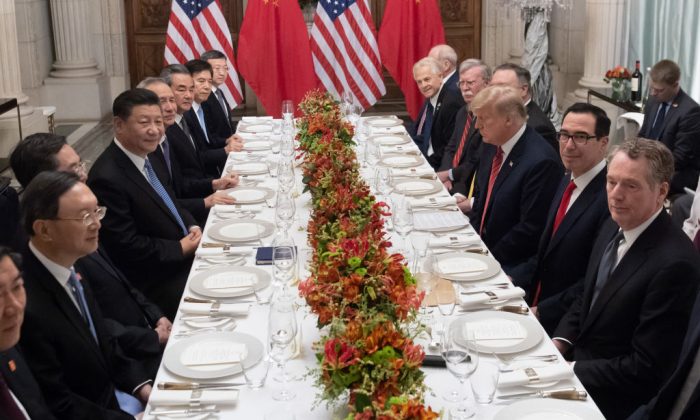WASHINGTON—The White House denied a media report that it rejected a trade-planning meeting with Chinese officials this week because of disputes over the structural reforms that China had promised to make.
CNBC reported on Jan. 22 that officials from the U.S. Trade Representative (USTR) were supposed to meet with two Chinese vice ministers this week to try to discuss trade differences. Citing a source familiar with the situation, CNBC said the U.S. side called off the meeting.
U.S. officials canceled this week’s face-to-face meetings with two vice ministers because of lack of progress on reforms, including forced technology transfers, the report said.
A White House spokesperson, however, told The Epoch Times that there was no meeting with the Chinese officials formally scheduled for this week, and, hence, denied rumors that the White House canceled a meeting.
The spokesperson also said, “the teams remain in touch in preparation for high-level talks with Vice Premier Liu He at the end of this month.”
Beijing last week confirmed that Liu would travel to Washington by the end of this month to hold meetings on Jan. 30-31 with Treasury Secretary Steven Mnuchin and U.S. Trade Representative Robert Lighthizer.
In early December last year, President Donald Trump and Chinese leader Xi Jinping declared a 90-day ceasefire in the trade war. As part of the truce deal, China, for the first time, made a firm commitment to delivering structural changes with respect to forced technology transfer, intellectual property protections, cyber intrusions, and cyber theft of trade secrets.
If both sides fail to reach an agreement by March 1, U.S. tariffs on Chinese goods will be increased to 25 percent from 10 percent.
For years, Washington has accused China of stealing key technologies and intellectual property from foreign companies using various tactics that include physical and cyber theft and forced technology transfers.
“China posts slowest economic numbers since 1990 due to U.S. trade tensions and new policies,” Trump wrote on Twitter on Jan 21. “Makes so much sense for China to finally do a Real Deal, and stop playing around!”
From The Epoch Times


